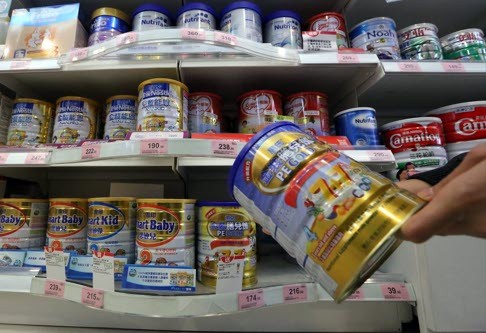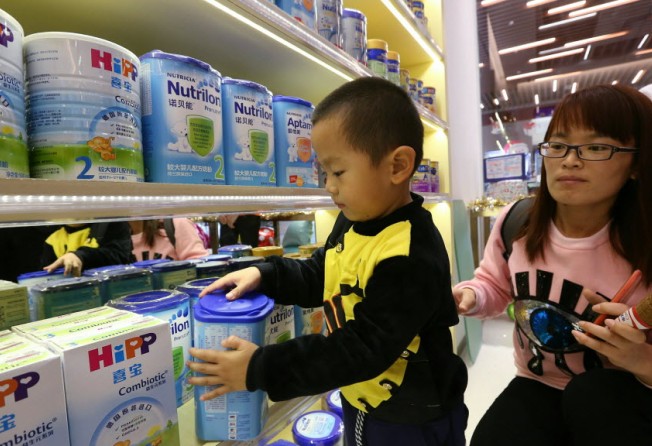
Foreign firms boosted by China’s new law on baby formula

International firms are likely to gain a bigger share of China’s baby formula market due to a new law governing product registration, analysts say.
The recently issued food safety law limits manufacturers to three infant formula brands each and requires all brands to be registered with the China Food and Drug Administration before they can be sold to retailers.
The law, expected to take effect soon, will apply to 103 Chinese companies and 73 foreign ones with production licences in mainland China. It will prevent companies from packaging the same formula under many different brands.
“This will trigger a reshuffle in the market,” said Lei Yongjun, chairman of Beijing-based consulting firm Proper Tao Ltd.
“We estimate as many as 80 per cent of the thousands of baby formula brands currently sold on the mainland would be eliminated upon the enforcement of the law.
“Most of them would be from those manufacturers adopting multi-brand strategies. On the other hand, big international formula manufacturers, which usually operate no more than three brands in China, will have a chance to take the market share lost from local rivals.”
China has been keen to reform its infant formula market, the largest in the world, in recent years.
Local dairy firms have long favoured a multi-brand strategy, supplying similar products under a variety brands to supermarkets, groceries and baby product stores. They often authorise distributers in different regions to sell the same formula using different names and packaging.
Since 2008, a series of food safety scandals have shaken Chinese consumers’ confidence in locally-made products and stimulated parents’ demand for imported formula.
According to customs, imports of infant formula rose from about 40,000 tonnes in 2008 to 120,000 tonnes in 2014.
Holland, Ireland, France, Denmark and New Zealand are the main sources.
Song Liang, a veteran dairy industry analyst formerly with the Ministry of Commerce, said the volume of imports would continue to climb in the next few years.
“Imported formula currently accounts for about one third of overall consumption in China. This percentage will continue growing because Chinese consumers continue trading up and cross-border e-commerce, a major sales channel for foreign formula products, is flourishing,” said Song.
International brands like Abbot, Aptamil, Friso and Wyeth dominate the markets in big mainland cities. But in smaller cities there are a large number of relatively unknown brands of formula packaged by small local companies.
This will trigger a reshuffle in the market
These import milk powder in bulk from abroad, then pack it locally and give it a brand name to sell to mainland buyers.
Such products are sold under numerous brand names despite differing very little from each other, leaving consumers confused.
By requiring all brands to be registered with the CFDA, the new rule would prevent companies from using the same formula for various brands.
“With the enforcement of the registration rule and an intensified market consolidation, most of these small brands would die out over the next few years,” Song said.
A senior CFDA official said the rule was only part of the government’s efforts to beef up regulation of the infant formula market.
The authority is planning to boost sample checks in factories, audit all infant formula companies and urge them to follow guidelines by the Food and Drug Administration of the United States.
“Infant formula is top of the list as the Chinese government addresses food safety issues,” said Song.